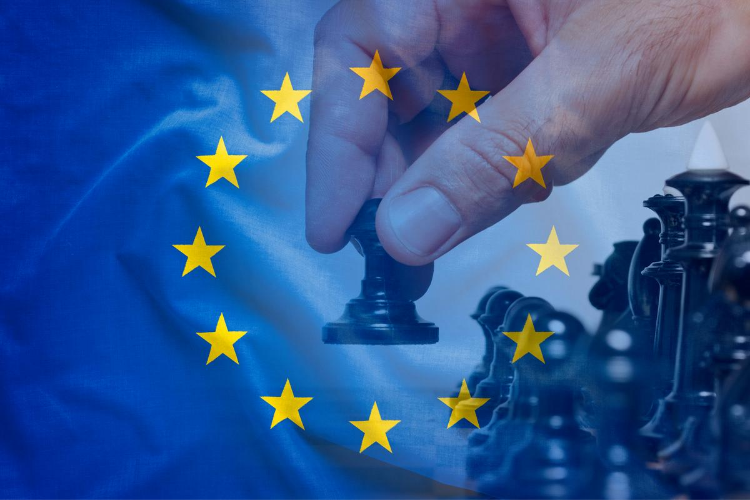‘A bomb’. That’s how a spokesman for the European Industrial Hemp Association (EIHA) calls the news that the European Commission is postponing the assessment of more than fifty ‘novel food’ applications for CBD products and considers CBD derived from hemp ‘for the time being’ as a narcotic, prohibited in the UN drug treaties. What is going on?
Hemp, CBD and novel food
Are products containing cannabidiol (CBD) food products, so-called novel foods, or are they drugs? This question has been an issue for years within various international organizations: the European Commission, the WHO and the United Nations. The European Commission’s first novel food regulation dates from 1997 and is intended as a safety mechanism for newly developed foods that were not on the market in the European Union before 1997.
Such a novel food must undergo an assessment procedure by the European Food Safety Authority (EFSA) before it can be placed on the market in the EU. So far nothing to worry about. Products made from or with hemp or natural, non-synthetic CBD, did not fall under the novel food rules until the end of 2018. In 1998, the European Commission stated: “It has been decided that foods containing parts of the hemp plant do not fall within the scope of Regulations EC 258/97.” And: “hemp flowers … are considered food ingredients”.
Shifting rules around CBD
But in January 2019, the European Commission suddenly changed its narrative. Products with CBD were suddenly considered as novel food, so that a long and expensive assessment procedure is mandatory for each individual product. This would mean that all CBD products in the EU should disappear from the shelves until there is approval from EFSA for each product. Currently, EU member states are free to determine how they handle CBD products; enforcement varies by country.
In January 2019, the WHO (World Health Organization) made six recommendations to the Secretary-General of the United Nations on the classification of cannabis in the UN Drug Conventions. One of those recommendations is about CBD: pure CBD and preparations with CBD containing less than 0.2% THC should completely disappear from the UN drug treaties. The UN drugs commission, the CND (Commission on Narcotic Drugs), is expected to decide on WHO recommendations in December 2020.
Imminent disaster for CBD producers and consumers
If the reports about the postponement of the novel food applications for CBD products and the European Commission’s provisional position are correct, a disaster threatens the producers, sellers and consumers of CBD products across the EU. The British website Foodnavigator released the news on July 15, under the headline “British cannabinoid industry sees opportunities now that European Commission is considering classifying CBD as a narcotic drug”. A good example of the saying “one person’s death is another person’s bread”.
The article features two anonymous European Commission spokespersons. Number 1 says, “We have doubts about CBD … at the moment, the preliminary analysis says it cannot be classified as food, but that is not a final decision.”
Spokesman 2 drops the real bomb: “The Commission’s preliminary view is that CBD, extracted from the flowering and fruiting buds of the hemp plant, should be considered a narcotic under the United Nations Single Convention on Narcotic Drugs, 1961.”
CBD not a novel food but a prohibited drug?
In other words: CBD is not a food supplement, not a novel food, but a prohibited drug, which according to the UN treaties must be eradicated with roots and branches. Companies that have submitted a novel food application for a CBD product can comment to the European Commission until the end of August, Foodnavigator reports. The Commission wants to clarify the status of CBD products in order to ensure uniform application of EU laws in all Member States.
This is remarkable because the position of the same European Commission for years has been that drug policy is not its competence, but a matter for the individual member states. Apparently, this principle does not apply to CBD, which according to the WHO has no psychoactive effect and can be used without risk.
Groot-Brittannië ziet kansen na Brexit
If the European Commission actually bombards CBD products into narcotics, the UK is probably the smiling third. The British Food Standards Agency (FSA) has already assured British CBD producers that they will not qualify CBD as a narcotic after Brexit.
Steve Moore, founder and advisor to the British Association for the Cannabinoid Industry (ACI), responds with mixed feelings to the news from Brussels: “It is very disappointing that the Novel Foods process has stalled, but it is encouraging to know that the FSA remains engaged with applicants, is committed to reviewing dossiers and is no different from supporting the regulation of CBD through the Novel Food route. It also positions the UK as a world leader in cannabinoid research and development.”
Sources used for this article:
UK cannabinoid industry spots opportunity as EC considers reclassifying CBD a narcotic, Foodnavigator.com, 15 juli 2020
All you need to know about the EIHA Novel Food Consortium, publicatie EIHA, juli 2020
European Commission proposes unified EU vote on WHO cannabis scheduling recommendations, MJbizdaily.com, 15 januari 2020
EIHA16, hemp and novel food, Cannabis News Network, 17 juni 2019
World Health Organization recommends rescheduling cannabis, provides clarity on CBD, MJBizdaily, 31 januari 2019]

